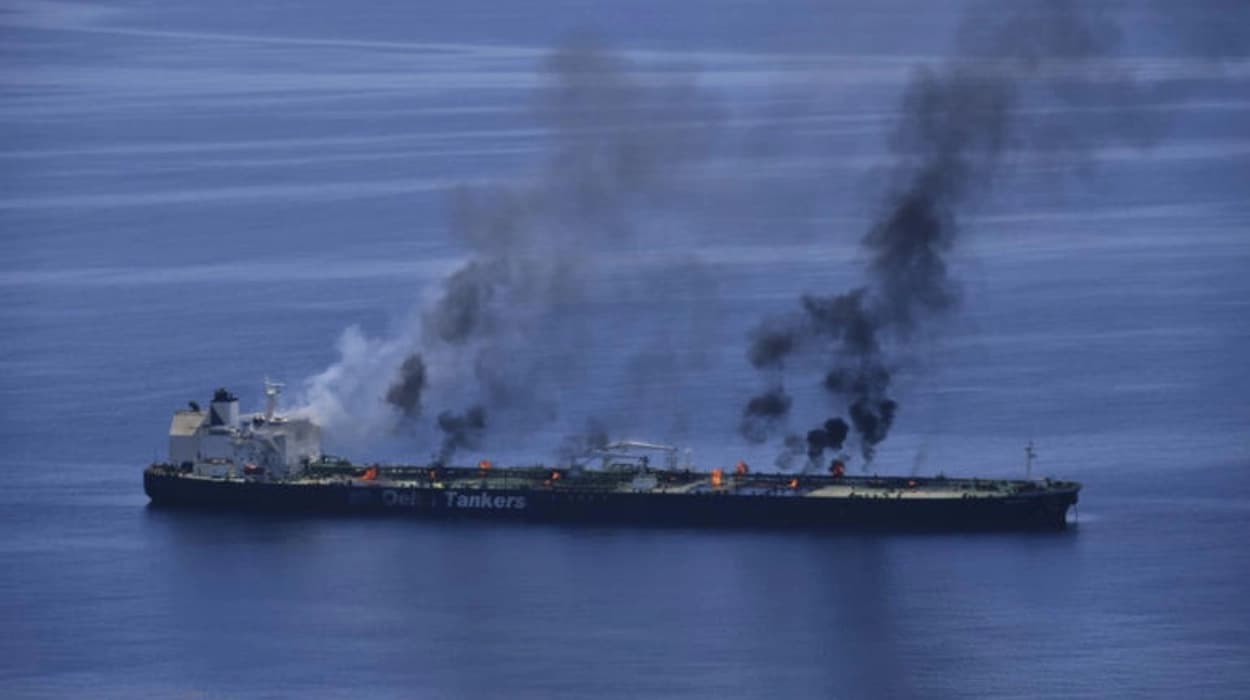Yemen's Houthi rebels have issued a stern warning to
escalate their attacks on shipping vessels linked to companies involved in
trade with Israel, heightening tensions in the volatile Red Sea maritime
corridor. The move reflects the rebels’ broader strategic positioning amid
regional conflicts and raises concerns over the safety of international
shipping routes.
What have the Houthis announced regarding attacks on ships?
As reported by Al Jazeera and other regional media, Yemen’s Houthi
rebel movement announced an escalation in their campaign targeting commercial
ships tied to companies that do business with Israel. The group threatened to
intensify attacks against vessels in the Red Sea, a crucial waterway for
international trade, especially oil and goods transiting between Europe and
Asia. This latest declaration marks a significant escalation of the Houthis'
maritime campaign, which has previously included attacks on Saudi-led coalition
shipping.
According to statements from Houthi spokesperson Yahya Saree
cited in various outlets including Reuters, the group views these attacks as a
response to what they consider Israeli aggression and the complicity of
companies trading with Israel. Their message is aimed at deterring global
companies from facilitating commerce with Israel through maritime routes
allegedly under their influence or threat.
Why are the Houthis focusing on ships linked to Israel?
The Houthis, who control significant parts of northern Yemen and receive backing from Iran, have consistently positioned themselves against
Israel, which they regard as an adversary allied with their regional enemies.
This hostility aligns with broader Iranian foreign policy aims in the Middle East, which oppose Israel's presence and influence.
As reported by the Associated Press and confirmed by Canadian National
Post's Middle East correspondent, the targeting of ships linked to Israel is
interpreted as part of a calculated effort to deter Israeli economic relations
and to disrupt the maritime trade agenda perceived as supportive of Israeli
state interests. The Red Sea, particularly near the Bab el-Mandeb Strait, is
strategically vital for commerce and military movement, making control or
threat to this passage a significant bargaining tool for the Houthis.
How might this escalation affect international shipping and regional security?
Experts and analysts quoted by The National and Bloomberg warn that
increased Houthi attacks on ships tied to Israeli companies could destabilize
an already fragile maritime environment. The Red Sea is one of the busiest
shipping routes globally, facilitating approximately 12% of world trade and a
substantial portion of global oil shipments.
The threat of attacks raises insurance premiums, complicates
logistics for international shipping firms, and risks spiking global energy
prices if the Strait of Bab el-Mandeb is affected. The United States and
European countries have previously deployed naval patrols to maintain security
in the region, and this announcement by the Houthis might prompt renewed or
expanded military presence.
Moreover, Saudi Arabia, the United Arab Emirates, and
Egypt—key regional players invested in maintaining safe shipping lanes—are
likely to respond with increased military and diplomatic measures, as outlined
by defence experts interviewed by Reuters and Middle East Eye.
What have international stakeholders said about the threat?
The United Nations and international maritime organisations
have expressed grave concerns over the safety and security of commercial
shipping in the Red Sea. A UN spokesperson, quoted in The Guardian, urged
restraint and called for dialogue to de-escalate tensions, warning that any
disruption in this vital maritime passage could have severe humanitarian and
economic consequences worldwide.
Israel has not released an official public response to this
specific threat at the time of reporting, but diplomatic sources referenced by
Haaretz note that Israeli security services remain vigilant and have increased
monitoring of maritime activities linked to potential Houthi threats.
What is the historical context behind the Houthi's maritime attacks?
The Houthi insurgency, which began as a political and
religious conflict within Yemen, escalated into a full civil war involving
multiple foreign actors since 2014. Over recent years, the Houthis have
developed capabilities to attack maritime targets, often launching missile
strikes and deploying explosive-laden boats. These have targeted Saudi-led
coalition vessels and commercial shipping, exacerbating the regional conflict.
The Houthis' growing focus on shipping linked to Israel
represents a shift aligning their military operations with the broader
geopolitical tensions of the Middle East, notably the Iran-Israel proxy
conflict.
How have shipping companies and regional authorities reacted?
Shipping companies operating in the Red Sea have heightened
security measures and route planning to mitigate risks from potential Houthi attacks,
according to statements from maritime security firms cited by Lloyd’s List and
industry analysts. Some companies are seeking to avoid ports and companies
associated directly or indirectly with Israel or have increased the use of
naval escorts for their vessels.
Regional port authorities, especially in Djibouti and Yemen,
have faced pressures to tighten controls and collaborate with international
navies to prevent acts of sabotage or missile attacks.
Could this escalation impact the Yemen conflict resolution efforts?
Diplomatic sources cited by Al Monitor and Reuters suggest
the announcement may further complicate ongoing peace talks and humanitarian
efforts in Yemen. The escalating threats of maritime attacks reflect the
Houthis’ leverage strategy amid stalled negotiations and continued blockade
issues.
International mediators fear that the militarisation of
maritime routes complicates humanitarian aid deliveries and raises the risk of
wider regional conflict beyond Yemen’s borders.
The evolving situation of Houthi threats against ships
connected to Israeli business interests underscores the intricate linkages
between local conflicts and broader Middle Eastern geopolitical rivalries. The
world’s critical maritime corridors remain a volatile flashpoint requiring
careful diplomatic and security management to prevent further escalation.
